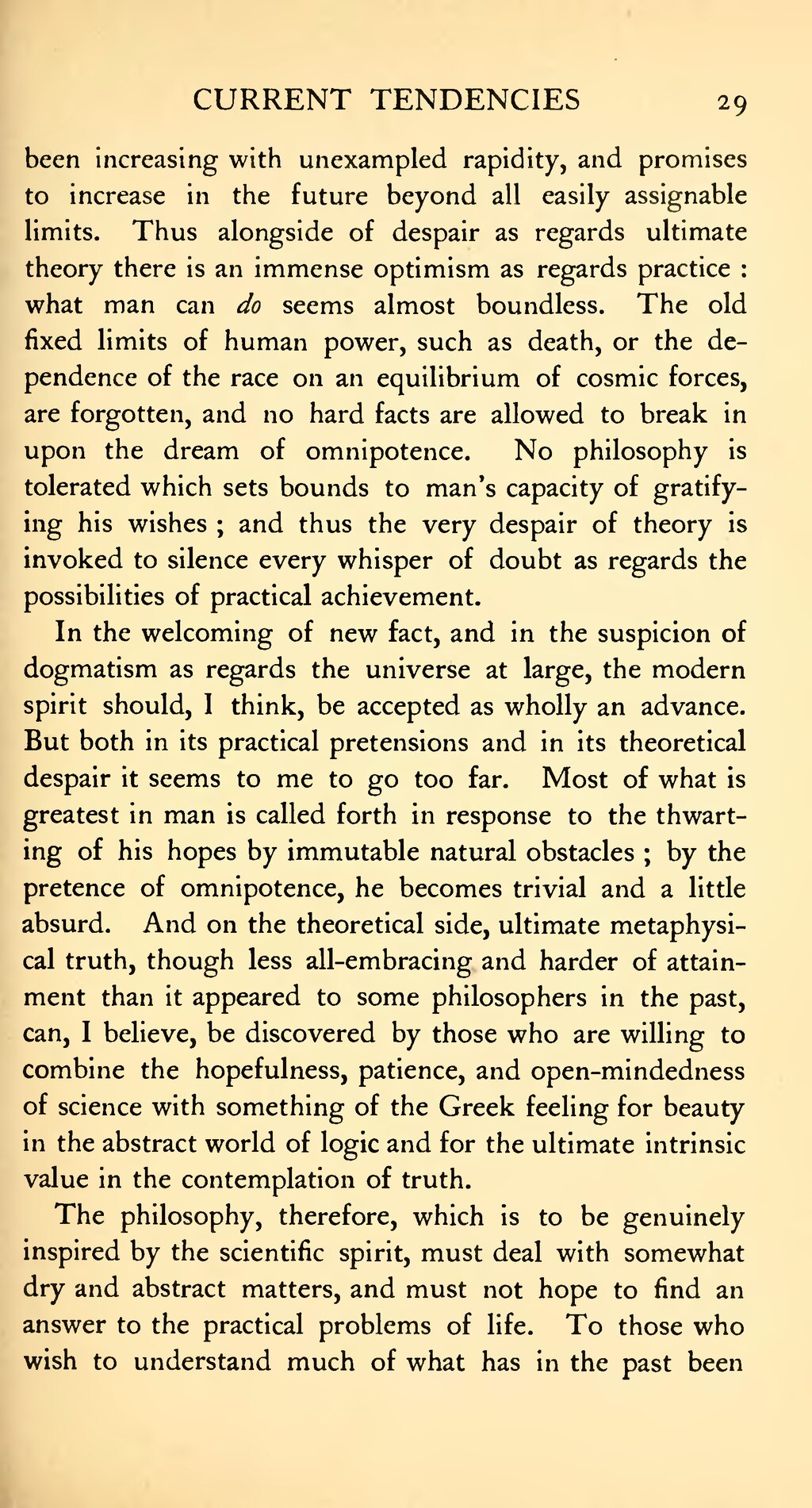been increasing with unexampled rapidity, and promises to increase in the future beyond all easily assignable limits. Thus alongside of despair as regards ultimate theory there is an immense optimism as regards practice: what man can do seems almost boundless. The old fixed limits of human power, such as death, or the dependence of the race on an equilibrium of cosmic forces, are forgotten, and no hard facts are allowed to break in upon the dream of omnipotence. No philosophy is tolerated which sets bounds to man’s capacity of gratifying his wishes; and thus the very despair of theory is invoked to silence every whisper of doubt as regards the possibilities of practical achievement.
In the welcoming of new fact, and in the suspicion of dogmatism as regards the universe at large, the modern spirit should, I think, be accepted as wholly an advance. But both in its practical pretensions and in its theoretical despair it seems to me to go too far. Most of what is greatest in man is called forth in response to the thwarting of his hopes by immutable natural obstacles; by the pretence of omnipotence, he becomes trivial and a little absurd. And on the theoretical side, ultimate metaphysical truth, though less all-embracing and harder of attainment than it appeared to some philosophers in the past, can, I believe, be discovered by those who are willing to combine the hopefulness, patience, and open-mindedness of science with something of the Greek feeling for beauty in the abstract world of logic and for the ultimate intrinsic value in the contemplation of truth.
The philosophy, therefore, which is to be genuinely inspired by the scientific spirit, must deal with somewhat dry and abstract matters, and must not hope to find an answer to the practical problems of life. To those who wish to understand much of what has in the past been
